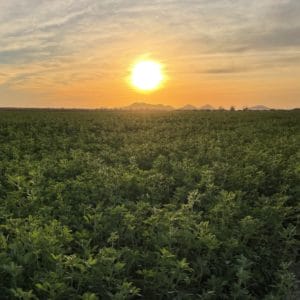
The power of resiliency at Gila River Farms
As a part of our week-long Sustainability Food Systems immersive trip, my classmates and I visited Gila River Farms on December 6th in order to get a look at one of the most prominent and promising local agriculture projects here in the Valley of the Sun. Agriculture has a long history in the Phoenix area. From the Hohokam people and their irrigation canals, all the way up to the historic Gila River water settlement in 2004, agriculture and water usage have helped shape the story of the valley, much as a river shapes the landscapes it traverses.
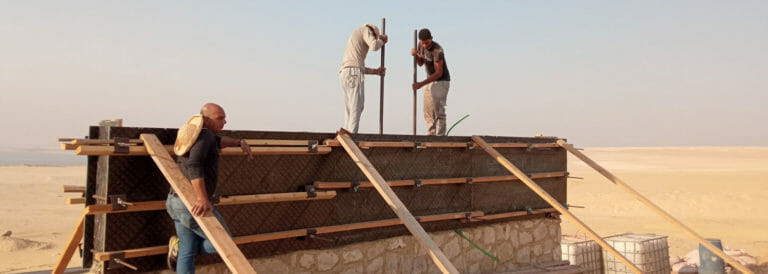
Hands Over: Sustainable, community conscious construction
Modern building techniques used by most design and construction companies are not environmentally sustainable. Hand Over aims to transform the construction industry through the use of natural and renewable materials. Founded by Radwa Rostom, a multiple award winning civil engineer, Hand Over fosters sustainable development through its approach to individual projects, buildings and spaces in addition to directly providing homes for underprivileged communities.
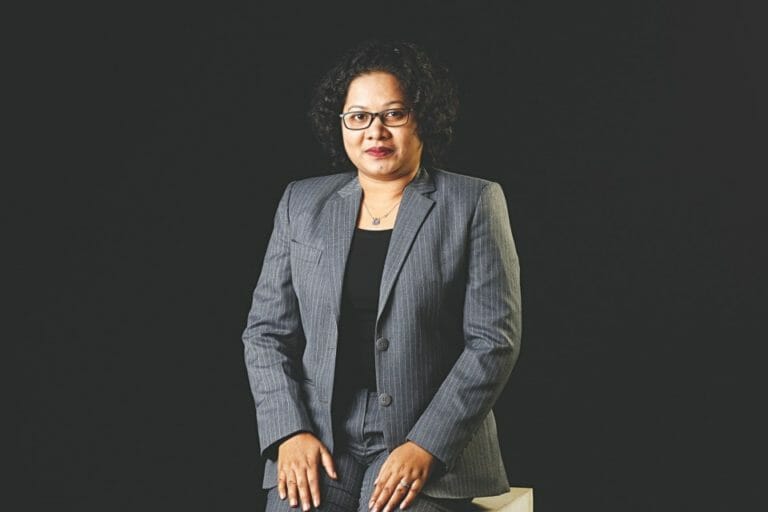
Women in Digital in a male-dominated industry
Over 15 years ago, Achia Nila discovered there were little to no women in the tech field. Since then, she has successfully brought women and girls into the tech field and continues to promote education and empowerment through technology. Her aim is to create digital platforms that “support, promote, and empower women in areas of IT.” In alignment with UN SDG 4: Quality Education, she has trained and empowered over 10,000 women and girls in Bangladesh and continues to work towards promoting women’s digital literacy.
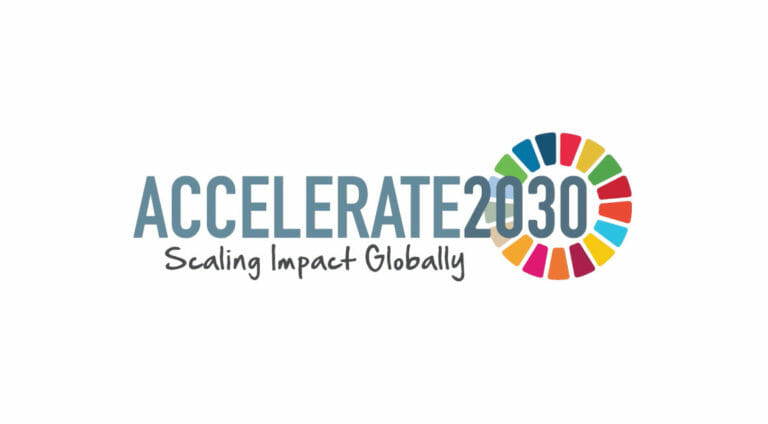
Accelerate2030: An innovative take on advancing entrepreneurship
Alexandra Boëthius is the Strategic Lead of Accelerate2030, which identifies and supports innovative companies tackling the SDG’s in emerging and developing countries.
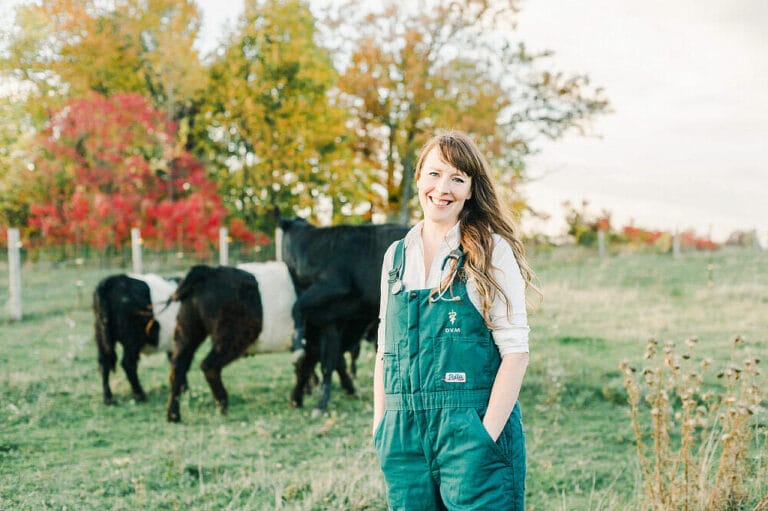
Transformative technology - the future of agriculture
From a career in Computer Engineering to earning her doctorate of Veterinary Medicine, Shari von de Pol began her journey in improving animals through innovative technology while also galvanizing people to envision their goals and bring new ideas to fruition in this space.
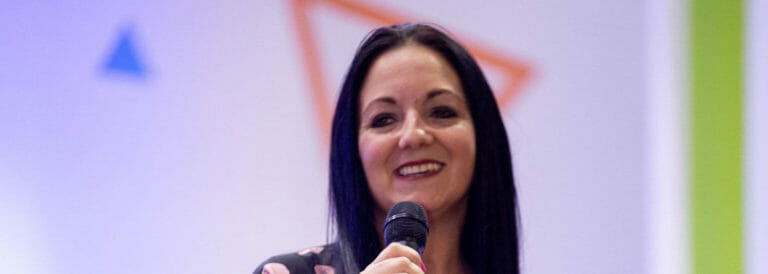
Nanas y Amas: Building prosperity through dignified domestic work
For over 12 years, Claudia and Nanas y Amas has provided decent work opportunities and empowered domestic workers to achieve economic independence. In alignment with UN SDG1: No Poverty and UN SDG8: Decent Work and Economic Growth, Nanas y Amas puts domestic workers in a healthier position to network, own their lives, and achieve their dreams while having access to work and the ability to economically support their families.
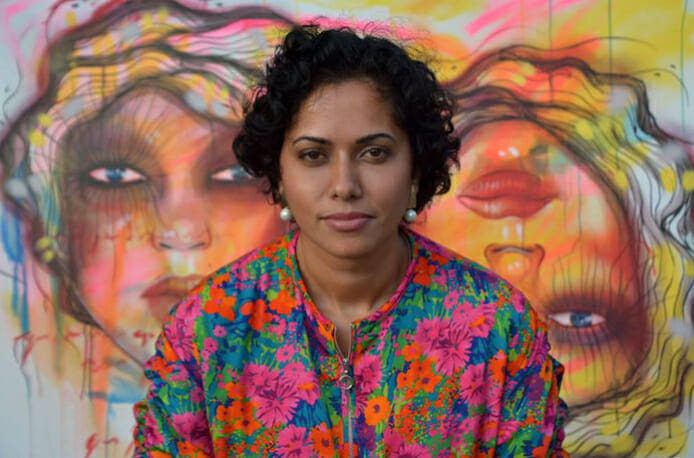
Rede NAMI: Women’s empowerment through urban arts
Fighting for gender equality to create a society free from violence towards women, Panmela Castro and the team of NAMI Network use art for cultural transformation through promoting women’s rights. Providing over 9,000 women with access to art education and financial independence, Castro creatively spreads information and laws about women’s rights to combat domestic violence.

Mayo Clinic and ASU MedTech Accelerator commence third cohort
Next-generation medical technology and service startups take part in a boot camp designed to increase product quality, efficiency and speed to market.
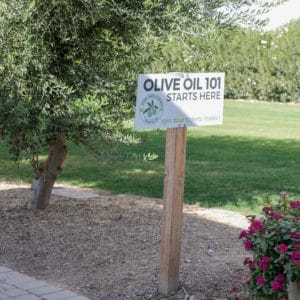
Behind-the-scenes with the largest olive oil producers in AZ
Perry Rea and his wife Brenda decided to take a vacation in 1997 to Scottsdale, AZ. They discovered olive trees growing in the area, prompting visits to olive oil operations in order to understand oil production. This sparked an interest for the Reas, and eventually Queen Creek Olive Mill was born.
2022 Brazel Lecture – Cities and Climate Change
Our 2022 Anthony J. Brazel Urban Climate Lecture will be delivered by Dr. Karen Seto of Yale University. The event will begin with light snacks at 4:30pm in the Alumni
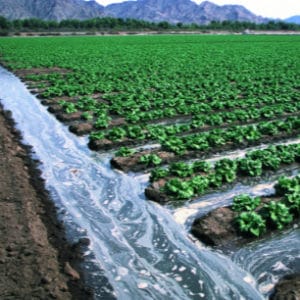
Water we doing?
What keeps you up at night? What worries you about the future of food? When asked this, the gentleman answered by sharing relatable responses. Will my grandchildren have food to eat? Will there be enough resources for their own families and friends to farm as their present-day ancestors? What does the future hold for the United States? Not only for the government but also for the land and people. When will urban leaders understand the importance of agriculture in the face of booming technology? These were a few aspects provided by Arizona Department of Agriculture (AZDA) Director Mark W. Killian.

Distinguished KAITEKI Lecture: How much income inequality is fair? A surprising answer to a 200-year-old open question in political economy
Extreme economic inequality is widely seen as a serious threat to the future of stable and vibrant capitalist democracies. Yet some inequality is inevitable, even desirable and necessary, for capitalist societies to work productively. But how much more? The debate is not so much about inequality per se as it is about fairness.